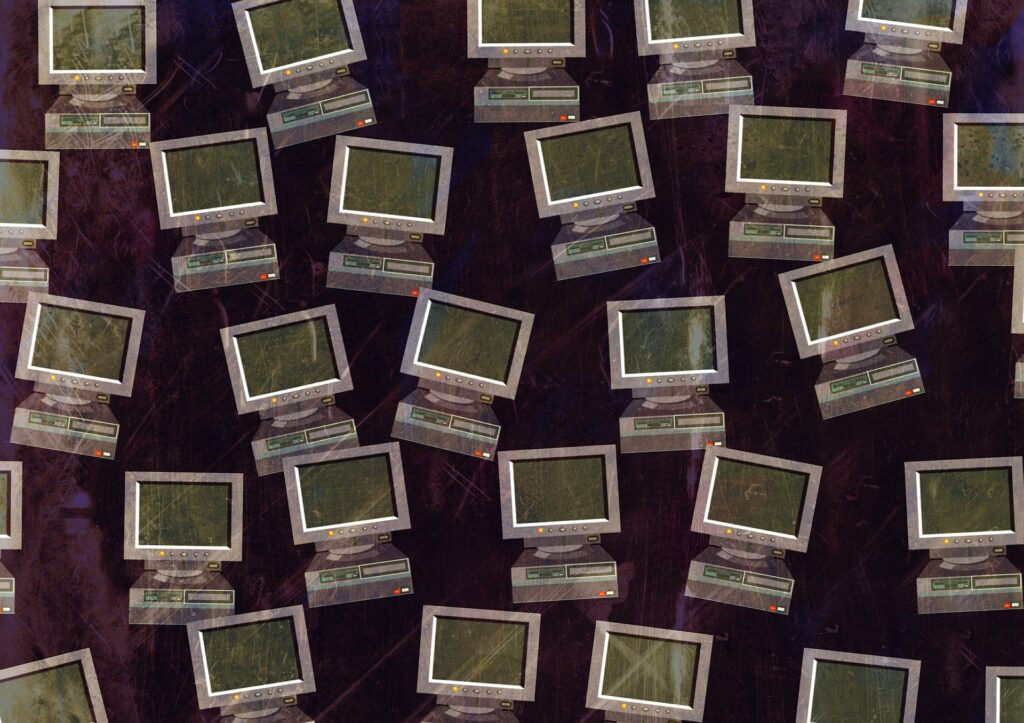
Piggybacking off the last blog post, Varying Sentences in Creative Writing, this blog is all about Repetition in Creative Writing. They may seem like the same thing, but they’re not. The previous topic was regarding sentence structures and how to fix them to be more complex. Now, we’re going to talk about spotting consistently used words and phrases, and what you can do to remedy the problems once you’ve identified them.

Guidelines
This is the fifth in a multi-part series of Motley Writers Guild posts specifically about the craft of writing, on a basic level. It’s intended to help you become a better writer overall, as well as provide you with something to refer back to whenever you need some guidance.
*Bear in mind that these are only suggestions; merely “guidelines” (writers, like pirates, love “guidelines” instead of “rules”).
Sometimes your writing is going to need to break the guidelines. And that’s fine! Do it! But first, it’s good to know what they are and how to use them to take your writing to the next level.

The Basic Creative Writing Guideline Series…
In February we celebrated the launch of our Services feature by doing a Critique Blitz, where we offered free critiques for over a dozen writers who submitted their amazing work for us to read. I found there were some common grammatical and structural areas in need of improvement running through quite a few of the stories. They were also things I’ve noticed as a beta reader/critiquer, and something I pointed out to the individual authors of the Critique Blitz too. Based on those common areas of improvement, I was inspired to write this series to help other people see the often very simple and easily fixed issues present in lots of creative writing.
The first in this series was about Using “That” In Creative Writing, which detailed some quick and easy ways of utilizing “that” to be most effective.
The second was about Dialogue Tags in Creative Writing; how to use them and omit them entirely sometimes.
The third installment of the series detailed the dreaded Info Dumps in Creative Writing. How to spot them, fix them, and avoid them altogether!
The fourth was the aforementioned Varying Sentences in Creative Writing.

Repetition in Creative Writing
Now, let’s combine the first post about the word “that” (which is commonly over-used) with the last one, about making sentences more diverse! What do they have in common? It’s simple: easy to spot repetition mistakes made by many writers.
This is something I’ve consistently had to point out to those who have trusted me to beta read or professionally critique their work. I even have a little template I cut and paste into the top of every reviewed piece of writing I’ve ever given back to its author. It’s a color coded legend, with yellow highlight identifying repetitive word usages, red for outright mistakes, and green for things I liked. I’ve been using that system for years because nearly every single story I’ve read has had the same issues (and positives!). Repetitive word usage ranks #2 as the thing I see the most often (second to over using “that”), and the thing I think all writers are capable of fixing on their own.
Over-using the same words, phrases, or terms can quickly become tedious for a reader. It may make you seem unimaginative (“why can’t they come up with something different?”) or lazy (“using the same way to describe this thing? Boring!”). But we here at the Motley Writers Guild believe no writer is intentionally unimaginative, and you’re certainly not boring!
So how do you make your writing reflect who you are as an author?
Well, once you can identify the problems you can get to work fixing them! And thankfully this problem can be very easy to fix!

Spotting Common Mistakes
Use the “find” feature of your word processing program. You can input whatever word you think you may be guilty of over-using, and then it will scan the document and give you a run-down of all the times it has appeared. Note: You can also do this with phrases, or names!
Reread your writing with a very critical gaze. Specifically look for places where you’ve used a word, and then reused it again shortly after. You might even want to print it out and go through it with a highlighter to really get an idea of where those same words are, and how close together they may be.
If you need some outside input: Get someone else to read your work. Depending on their level of critiquing and/or editing abilities, they should be able to notice when you’ve over-used a word or phrase. You will need to specify that this is an area you want the critiquer/beta reader to give you feedback on, otherwise they may not know to look out for it. A lot of beta readers only want to give simple, overall constructive criticism, and it’s unfair to ask them to go too far in depth in their responses if they aren’t willing (or capable) of doing it (and especially if you aren’t paying them!). A lot of editors may focus more on Big Picture problems, and if you haven’t paid for line-by-line copy editing it isn’t something you’ll get. We here at the Motley Writers Guild offer critiquing and beta-reading Services that range from relatively inexpensive overall feedback, to the more costly intense critiques meant to spot the majority of problems — and we detail how to fix them too.

Examples
I don’t want to use other people’s actual writing as examples, because that would be a breach of the trust I’ve developed with the writers who ask me to critique their works. There are quite a few words I’ve seen over and over though, so I’ll detail them because they aren’t specific to one person. And I AM going to use my fellow Motley Writers Guild member (and writing collaborator) A.D. Moseley as an example!
I’ve had the pleasure of reading quite a few of her amazing stories. In the earliest draft of one of them I noticed she consistently used the phrase “quirked a brow”.
Now, this is technically correct. It is a saying.
Quirk: to twist your mouth or eyebrows suddenly; (of your mouth or eyebrows) to move in this way
Examples:
David quirked an eyebrow and smirked slightly.
Her lips quirked suddenly.
Oxford Learners Dictionary, “quirk” (verb)
See? It’s a thing!
And I could recall seeing it in other published novels too. According to a Reddit user, on this thread about writers over-using “eyebrow raising” in their stories: Jim Butcher repeatedly has his characters “quirk an eyebrow” in the Dresden novels. But it isn’t exceptionally common in the books I’ve read.
Now, though it’s a technically correct term to use, when over-used it becomes very, very noticeable. A.D. Moseleys utilization of it stood out to me, personally, because I wasn’t super familiar with the phrase. That was more of a “me” problem, than a problem of hers as a writer.
However, when you read the same word/phrase on every page or every other page it will begin to stand out to readers — regardless of how correct the usage of that word/phrase is. Thankfully, brows being quirked wasn’t that common in the draft I read. But these next lists are common things I’ve noticed in other people’s stories…
Some greatest hits of words I’ve seen used over and over:
(You get the idea)
Some greatest hits of phrases I’ve seen used over and over:
- Raised an eyebrow
- Withering gaze
- Shuddering breath
- Glared daggars
- Shaking hands
- Shrugged shoulders
(You get the idea)

Why those examples matter
Now, these are all fine and dandy when used in the right amounts. Even something as innocuous as “that” or “said” should fade into the background of your novel when used normally. But they become repetitive and in dire need of fixing when you read them in every single paragraph, or worse: multiple times in one paragraph!
You may note that a lot of those examples are verbs (“action words”) so when over-used it means a character is doing the same action repetitively. That’s pretty easy to fix, just omit the actions and let the reader fill in the scene with their imaginations! Or break out the ol’ Thesaurus and get to Thesaurusing!
The most common mistake is usually…
When you’re writing and you’ve just used a normal word, and then you use that same word again in the sentence or the next sentence.
I think this often happens because as you’re writing sometimes things you want to say can get stuck in your head! So you don’t notice you’ve already said that thing you just said. (Aren’t you loving how I’m using words repetitively so you can spot this mistake in the wild? 😉 )
For example:
The blue sky seemed endless without a cloud in the sky.
(Breakdown: “sky” used twice in one sentence)
What sort of writer doesn’t realize she’s already said writer twice already and by the end of the sentence she’s going to say writer again one more time?
(Breakdown: “writer” used x3, “already” used x2)
Orange cats may have only one shared braincell, but that one braincell they happen to share is very, very smart — or at least it seems that way to a cat. To everyone else, it’s clear that these are the lovable dunces of the cat world, using their combined brain power (and single shared braincell) to entertain everyone.
(Breakdown: “cats” used x3, “braincell” used x3, “brain” used x4, “that” used x3, “everyone” used x2, “share(ed)” used x3. All of this in only two sentences within one paragraph.)

How to fix it
As I suggested before, use the “find” or “search” function of your word processor or writing program to identify these repetitive areas.
You can also print it out and use a highlighter, or have someone else read it to help you find the over-use of repetition in your creative writing.
Then reword the sentences to utilize other word choices!
It really can be that easy. Just using synonyms can make or break a story, taking it from repetitive to varied in a matter of seconds.
You may also need to completely reword something, so you avoid utilizing the same words or phrases. Put trust in your reader that they’ll understand what you’re saying without you having to repeat the same thing.

Let’s revisit those examples I whipped up on the fly.
Using the previous methods of swapping words out, and rewording entire sentences, you can come up with much better writing in a matter of minutes…
“The blue sky seemed endless without a cloud in the sky.” becomes “The cloudless blue sky seemed endless.”
“What sort of writer doesn’t realize she’s already said writer twice already and by the end of the sentence she’s going to say writer again one more time?” becomes “What sort of writer doesn’t realize she’s utilized the same words already? By the end of the sentence she uses them once again.”
“Orange cats may have only one shared braincell, but that one braincell they happen to share is very, very smart — or at least it seems that way to a cat. To everyone else, it’s clear that these are the lovable dunces of the cat world, using their combined brain power (and single shared braincell) to entertain everyone.” becomes “Orange cats may share only one measly braincell between the lot of them, but the remaining cell is very smart — or at least they think it is. To everyone else, it’s clear these are the lovable dunces of the feline world, using their combined wits to entertain all who encounter them and their single shared braincell.”
Those examples aren’t perfect, because I’m not a perfect writer, but you get the idea!
But beware of getting too swap-happy with your Thesaurus!
You don’t want to over-correct and throw in a bunch of unnecessary synonyms for the sake of avoiding repetition in creative writing. That can get real crazy real quick, and could be just as bad as using the same words again, as it might make you stray into ‘purple prose’ territory.
Sometimes it’s best to redo a sentence or paragraph entirely so you can say what you need to say without referring to the noun or verb more than once.

Try to stay away from too much obscurity
Sometimes even if a word/phrase is correct, it could be relatively obscure for the audience you’re gearing your story towards, which will make it stand out if used repetitively. For example: In a YA novel I read, the writer said “heaving” often. At least once a chapter.
Heaving is a totally normal thing to happen, in certain instances. But it would usually be more at home in the pages of a romance novel, or at least a story meant for adults.
Of course this isn’t always the case, and maybe it was appropriate for the writing, but in that instance it definitely seemed out of place.
Try to keep your word choices relatively familiar to your audience
The same goes for regionally common terms you may be used to, but aren’t universally accepted. You may notice this as a North American if you’re reading a story written by a UK author, or vice versa.
I noticed it a lot in the Confessions of a Shopaholic series, because Sophie Kinsella has a regional way of writing and refers to stores as “shops” and a line as a “queue” etc.. This wouldn’t stand out to someone from her country because these are common things to say, but they stood out to me.
Now, you don’t have to worry yourself about making sure every single word you use is familiar to every person from every country on Earth. But you should ensure you’re utilizing relatively common language terms, and if you’re wanting to put your own stylistic spin on something you should ensure you’re using those more obscure words/phrases sparingly so they don’t become repetitive.

Don’t forget: Writing is supposed to be fun!
Take all my advice with a grain of salt. If you feel you need to say “magenta” six times in one paragraph you go ahead and do it. If you never want to use the same word twice in a novel you go ahead and do that too! You’re the writer, and these Guidelines are meant to help you in your journey.
We at the Motley Writers Guild want to see you be the best writer possible! Stay tuned for more in this series on the basic craft of writing. Each installment will help you grow as a writer and identify simple, common problem areas you can fix yourself.
What do you think of repetition in creative writing? Have you noticed this issue before? Are you guilty of doing this yourself? If so: don’t worry, we all are! Leave a comment on this blog post to tell us what you think. We love hearing from you!
The Motley Writers Guild’s – Em Van Moore
If you enjoyed this post, please subscribe to The Motley Writers Guild for notice of new blog posts and writerly news, as well as promotions and unique content only available to our valued subscribers!

Want to hire a Motley Writers Guild member?
We offer Services! Our members have an array of styles and wealth of knowledge gained from years writing, reading, and critiquing. You can hire us as Beta Readers or Critiquers! Check out the Testimonials on the bottom of the Services page, and see which member is available by clicking on the “Get a Personalized Quote!” buttons.



